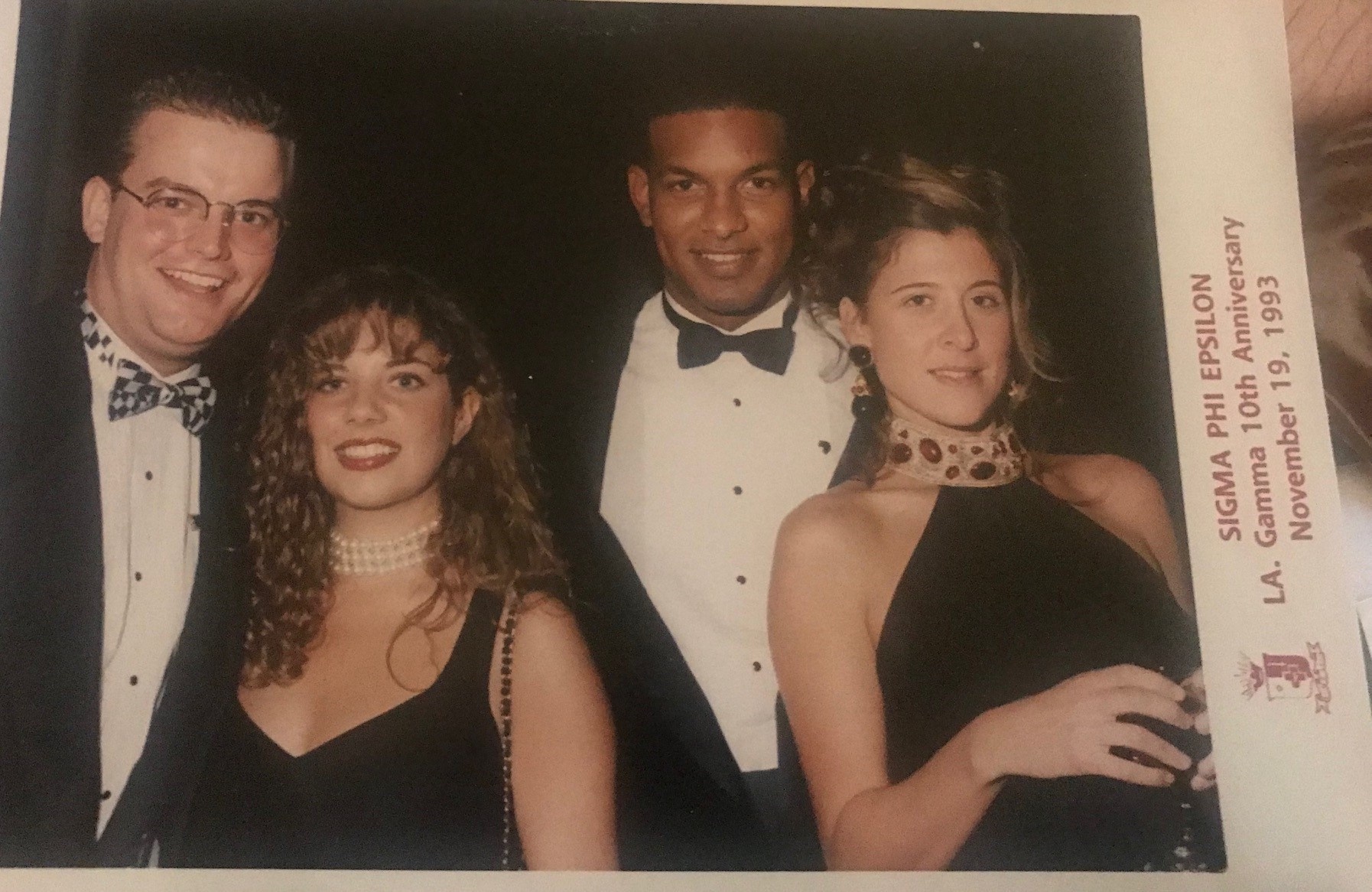
In finding my tribe I found my voice
Maggie Breault hoped going to university in New Orleans would allow her to start a new life, one in which stammering didn't define her. She found the experience to be so much more.
Let me paint a picture of the person I was 31 years ago this Fall: Age 20, a California native from a small town and the tenth child in a family of twelve. I had a ferocious stutter. As much as my folks tried to wrap their heads around it, it was often dismissed as the ubiquitous "she just has a lot going on in her head." The phrase "slow down!" still sends waves of dread and shame from my toes to my earlobes.
I wanted desperately at that time to form an identity of my own, in a place where I wasn't bound to run into someone I was related to; a place where I wasn't known for my stutter. Armed with a scholarship, I was beginning a new chapter for myself in my favourite American city: New Orleans.
Those first few days
The week I moved in to the dormitory on campus was frightful, but in the best possible sense (think rollercoaster). Absolutely, jaw-droppingly, frightful. It was SO busy, SO colourful, SO unlike anything I had ever been a part of. Standing in line at the Bursar's Office to get my first scholarship disbursement, I recall vividly how absolutely petrified I was that someone, anyone, would hear me stammer. But the Bursar was lovely and patient and I never once had a block, even when saying my name, which magically now seemed to flow from my tongue like warm honey.
I was fraught with apprehension that my stammer would somehow start to define me in the way it defined me in California.
The next day I met with my adviser and again I was fraught with apprehension that my stammer would somehow start to define me in the way it defined me in California. But when I met with my him, my speech was miraculously smooth and unencumbered by blocks. We chatted for over an hour about my educational goals and it was maybe the first time in my life I had felt so empowered and unafraid of what came out of my mouth.

In the coming days, then weeks, that initial burst of confidence in myself and this new adventure worked to deconstruct my own perceptions and beliefs about myself — patterns of repressing my voice and faulty logic related to my speech had gone unchecked for over two decades and were now morphing into new attitudes with regards to my own self-worth.
- See Getting help At University and Socialising At University for tips on coping and making the most of it.
I was finally able to stop judging myself long enough to be fully in the moment on campus when I realised I was now living and breathing (and yes, speaking fluidly) in a city that was far more interesting than my stammer. A city where, on any given day, you are liable to sit next to a 6'7" man in drag on the streetcar and have the most fascinating conversation of your life. Who's to say I wouldn't have had a similar experience elsewhere, but I truly believe my voice would've gotten lost in the shuffle. Somehow the tonal beauty of New Orleans acted as a salve to my vocal chords.
In my element
By week three I was fully ensconced in classes and was signing up to play soccer and joining classmates for pub nights. I already had a major crush on a boy from the Cayman Islands. My campus job was taking polling information for the Institute of Politics at the university and it was deeply fascinating. I was in my element, carving out a niche for myself and adding my voice to the multitudinous layers of sound that floated around me at all times. In 'The City That Care Forgot', I forgot about my stammer completely.
Finding your 'place; and your tribe is important. And I realise now, as a former high-school college counsellor, that many students never feel an intrinsic connection with their university of choice. Some do just fine and graduate on time and with honours. Others might seek a university that better aligns with their own unique ethos. Since I've always identified as a person who stammers, the connection I was lucky enough to experience in New Orleans in general, and on campus specifically, became of paramount importance in my vocal-evolutionary process. Those early encounters during that muggy, swampy summer set the stage for a decade of fluency that I had never been able to access previously.
In 'The City That Care Forgot', I forgot about my stammer completely.
By week four I had already received 13 letters from my folks (they knew I despised the phone). When letter 14 arrived, I grabbed my bright orange dormitory cordless phone and called them directly. They picked up worriedly, both saying in unison, "What's happened? Are you safe?" "Relax" I told them, "I just want to talk on the phone from now on and not avoid it, is that okay?" I may have heard my mother sniffle a little into the receiver. "Yes dear," my father said, "we would really like that."
In finding my 'tribe' I was able to also find my voice. So go out now, and find yours!
Get in touch with the Stammerers Through University Campaign (STUC) for more support at uni.


































